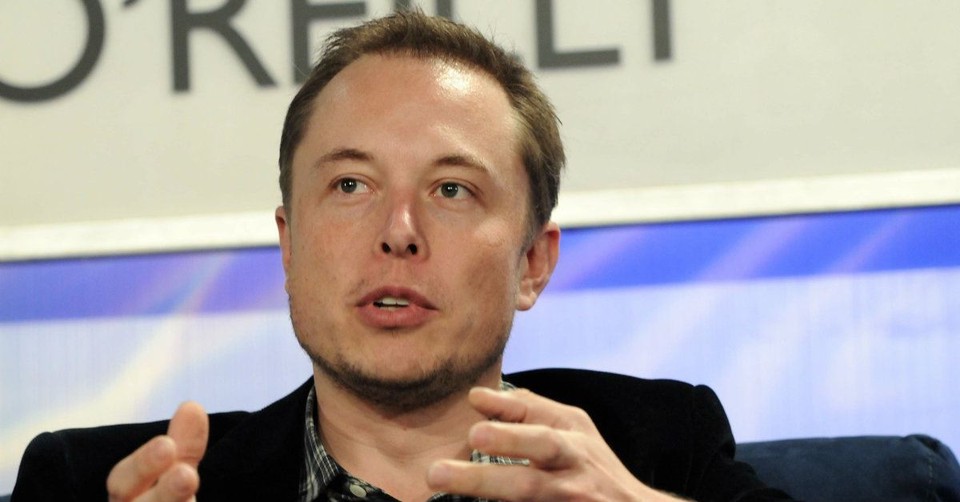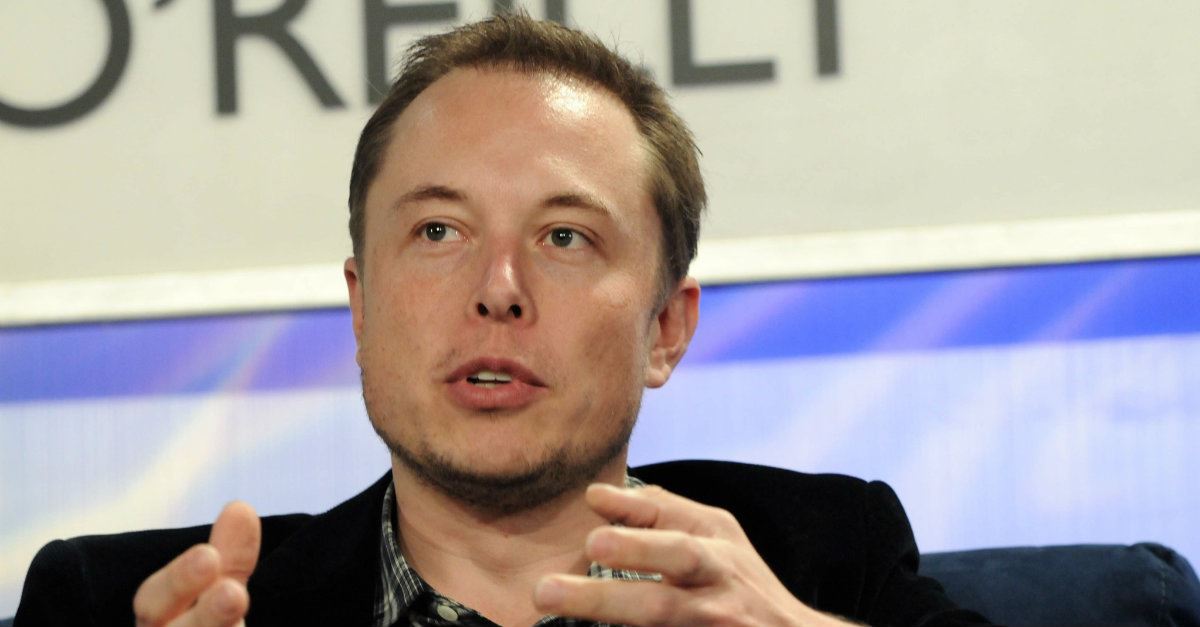Does God Believe in Elon Musk?


Why does it sometimes seem like brilliant inventor Elon Musk is having a nervous breakdown? Could it be because he knows a big, awful truth that the rest of us don’t?
Musk, the quirky CEO of Tesla and SpaceX, made headlines this week when he told Axios that “humans must merge with machines to overcome the ‘existential threat’ of artificial intelligence.” He, of course, has made similar arguments before. And, as worried as I am about artificial intelligence (and I am really, really worried) what stood out to me was not so much that argument as another one. Musk said, again, that he’s not sure that reality is, well, real. “Maybe we’re in a simulation,” he told journalists Mike Allen and Jim Vandehei.
The life-is-a-computer-simulation idea, and Musk’s thoughts on it, are the subject this month in an essay by Walter Kirn in this month’s issue of Harper’s magazine. Kirn defines the simulation theory, pioneered by Swedish philosopher Nick Bostrom, as the idea that a “machine-based, multidimensional deception contrived by beings we may never meet, and for reasons we may never know” are essentially running the universe the way we might play a video game. We are not real, and neither is the world around us, and these beings may opt to turn the game off “at any time as mysteriously and arbitrarily as they turned it on.”
Kirn finds the theory “metaphysically destabilizing and existentially humiliating,” and writes that it ultimately leaves him feeling cold and flat. So, he wonders, why would Elon Musk work so hard to improve the world if he thinks it might well be phony? “Perhaps his drive to invent was sharpened by knowing the world itself was consciously designed and engineered,” Kirn speculates. “Or maybe the concept had freed him by dispelling his fear of death.”
Kirn concludes that Musk’s seeming “breakdown” might just be a stand-in, as has happened in the lives of other significant culture-makers, of a crisis in society itself. He might be in the middle of a “disintegration,” Kirn writes, but that doesn’t mean it’s just that. “Transformations are rarely pretty at first, particularly ones that liberate a person from the confines of beliefs and attitudes that everyone else is still afraid to challenge.”
Maybe, Kirn offers, “Musk’s struggles may sometimes appear like the birth pangs of a new perspective toward ourselves, our machines, and the prospect that we are enveloped in a reality that we can neither alter nor escape.” And, keep in mind, that prospect is what Kirn thinks is the good news here.
It seems to me that Kirn is partly right. Maybe Musk does, in fact, represent a society in crisis, in the throes of a digital revolution that maybe is shaking our most basic assumptions more than we think. And maybe Musk’s “80 percent” certainty that we are a simulation isn’t entirely crazy. Maybe it’s just the way he is trying to make sense of the fact that the universe certainly seems to be more than just a random, chaotic accident. There seems to be purpose, even a narrative, behind the cosmos, and behind our individual lives. In fact, that’s the only way to make sense of why we would invest so much of our hopes and fears in the world around us. Maybe what Musk is trying to identify is a wisdom behind it all (Jeremiah 10:12), an intelligence that starts everything and holds it together (Colossians 1:16-17).
The problem is that the only metaphor our digitalized, disenchanted age can find for such a mystery is that of a machine. This is the phenomenon Wendell Berry identified years ago, as the central question of our time, whether we will see people as creatures or as machines, whether life is a program or a miracle. Elon Musk sees signs of purpose in the universe around him, but can only think in terms of programming rather than providence. The mystery of it all is that behind all of this is not a shadowy group of scientists but a God who not only created and constantly upholds a very real world but who loves it.
In the very same issue of Harper’s in an article on a completely different subject, another writer, Terrance Hayes, discloses his argument with poet Mary Karr about whether language is “mostly like an animal, or a machine.” He makes his case by saying to her, “’In the beginning was the Word,’ we are told in the Gospel of John. We are also told that the word was made flesh, not that the word was made machine.’”
I would say that this Word does indeed explain the seeming coherence, the seeming intelligence, the seeming beauty and mystery of the world around us, and that this Word is neither animal-like nor machine-like, but personal. In the beginning was not the algorithm, but the Word. And that Word, not a technology but a person, “became flesh and dwelt among us, and we have seen his glory, the glory of the only begotten from the Father, full of grace and truth” (John 1:14). Perhaps that’s a word (and a Word) that Musk, and the rest of us, need to hear.
Musk is right that the mechanization threatens us more than we think, if not in terms of extinction of the human species then certainly in terms of the extinction of our sense of what being human really is. Fighting dehumanization with super-humanization won’t work though, and could only work in a fake “world” of aliens playing with us, not in the real world where we are now, the kind of world that finds people, as Walker Percy once put it, “lost in the cosmos.”
Maybe Musk is wrestling against what he thinks is a programmer when, in reality, what’s waiting for him is a Father. Maybe he fears the universe is a program, because that’s what he knows best, when in reality the universe is a Father’s house, with a place at the table even for, especially for, those on the verge of a breakdown.
And maybe Musk thinks we should be rebooted when, in fact, we must be born again.
Photo courtesy: Wikimedia Commons
Originally published November 30, 2018.




